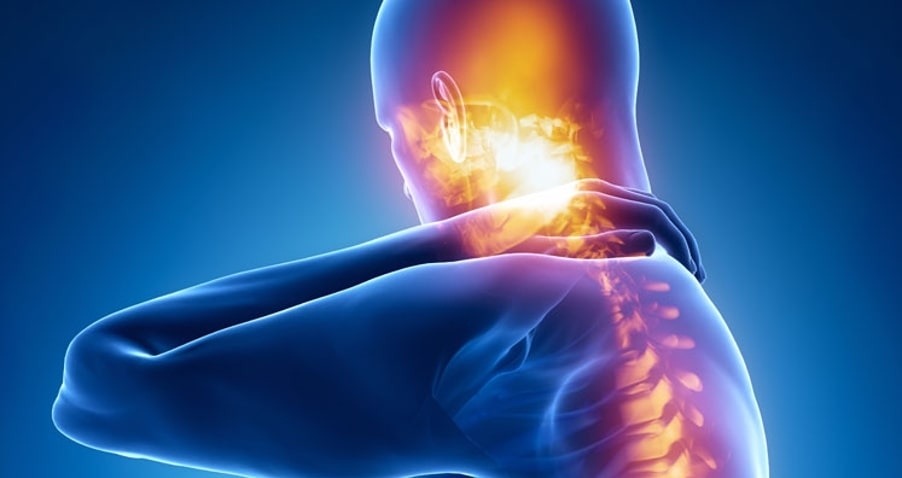Chronic pain and sleep disturbances often go hand in hand, creating a challenging cycle that can exacerbate both conditions. For individuals with chronic pain, finding effective ways to manage pain while improving sleep quality is crucial for overall well-being. This article explores the intricate relationship between chronic pain and sleep, offering strategies for managing pain to achieve better rest.
1. Understanding the Connection Between Pain and Sleep
-
Impact of Pain on Sleep: Chronic pain can significantly disrupt sleep by causing discomfort, making it difficult to fall asleep, and leading to frequent awakenings throughout the night. The discomfort may also prevent individuals from reaching deeper, restorative stages of sleep.
-
Sleep's Effect on Pain: Poor sleep can increase sensitivity to pain and lower pain tolerance. Sleep deprivation can exacerbate pain conditions, leading to a vicious cycle of pain and sleep disturbances.
2. Effective Pain Management Strategies for Better Sleep
-
Medications: Some medications used for pain management can also influence sleep. For instance:
-
Analgesics and NSAIDs: While primarily used for pain relief, their effectiveness in improving sleep varies and depends on the underlying condition.
-
Opioids: Although they can reduce pain, opioids may disrupt sleep patterns and lead to dependency.
-
Medications for Sleep: Certain medications, such as certain antidepressants or specific sleep aids, can help manage both pain and sleep issues. Consultation with a healthcare provider is necessary to balance pain relief with potential side effects.
-
-
Topical Treatments: Topical analgesics, such as creams or patches, can provide localized pain relief without systemic effects that might interfere with sleep.
3. Non-Pharmacological Approaches
-
Physical Therapy: Engaging in physical therapy can improve flexibility, strengthen muscles, and reduce pain, potentially leading to better sleep. A tailored exercise program can help Pain Management and promote better sleep patterns.
-
Cognitive-Behavioral Therapy for Insomnia (CBT-I): CBT-I is a structured program that helps individuals overcome insomnia by addressing thoughts and behaviors that affect sleep. It is particularly useful for those whose sleep problems are exacerbated by pain.
4. Sleep Hygiene Practices
-
Consistent Sleep Schedule: Maintaining a regular sleep schedule by going to bed and waking up at the same time every day can help regulate the body’s internal clock and improve sleep quality.
-
Comfortable Sleep Environment: Creating a comfortable sleep environment by ensuring a supportive mattress and pillows, controlling room temperature, and minimizing noise and light can enhance sleep quality.
-
Relaxation Techniques: Practicing relaxation techniques such as deep breathing exercises, progressive muscle relaxation, or meditation before bedtime can help reduce pain and prepare the body for restful sleep.
5. Mind-Body Techniques
-
Mindfulness Meditation: Mindfulness practices can reduce stress and anxiety, which can, in turn, improve pain management and sleep quality. Mindfulness meditation teaches individuals to focus on the present moment, reducing the impact of pain on sleep.
-
Biofeedback: Biofeedback helps individuals gain control over physiological functions that affect pain and sleep. By learning to control stress responses and muscle tension, individuals can improve both pain management and sleep quality.
6. Diet and Lifestyle Adjustments
-
Healthy Eating: Consuming a balanced diet with anti-inflammatory foods can support overall health and potentially reduce pain. Avoiding heavy meals close to bedtime can also prevent discomfort that disrupts sleep.
-
Limiting Stimulants: Reducing or eliminating caffeine and nicotine intake, especially in the hours leading up to bedtime, can help improve sleep quality.
-
Regular Exercise: Engaging in regular physical activity can promote better sleep and help manage pain. However, it is essential to avoid vigorous exercise close to bedtime, as it may have the opposite effect.
7. Alternative Therapies
-
Acupuncture: Acupuncture may help Managing chronic pain and improve sleep quality by stimulating specific points on the body and promoting relaxation.
-
Massage Therapy: Regular massage therapy can reduce muscle tension and pain, contributing to better sleep quality. It also promotes relaxation and reduces stress, which can enhance sleep.
-
Aromatherapy: Essential oils such as lavender or chamomile have calming effects and may help improve sleep quality when used in diffusers or added to bathwater.
8. Monitoring and Adjusting Treatment Plans
-
Tracking Sleep Patterns: Keeping a sleep diary or using sleep-tracking devices can help individuals and healthcare providers monitor sleep patterns and identify factors affecting sleep quality.
-
Regular Reviews: Regularly reviewing and adjusting pain management strategies in collaboration with healthcare providers ensures that treatments remain effective and do not negatively impact sleep.
9. Seeking Professional Support
-
Sleep Specialists: Consulting with a sleep specialist can provide insights into specific sleep disorders and tailored treatment options for improving sleep quality in the context of chronic pain.
-
Pain Management Clinics: Pain management clinics offer comprehensive approaches to pain relief and often include multidisciplinary teams that address both pain and sleep issues.
Conclusion
Managing chronic pain effectively is crucial for achieving better sleep and overall well-being. By combining pharmacological treatments, non-pharmacological approaches, sleep hygiene practices, and mind-body techniques, individuals can address both pain and sleep disturbances. Personalized treatment plans that incorporate these strategies can help break the cycle of pain and poor sleep, leading to improved quality of life. Collaborating with healthcare providers to monitor and adjust treatment plans ensures a comprehensive approach to managing chronic pain and enhancing sleep.



